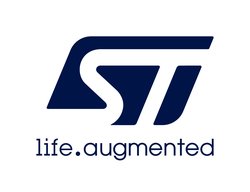DISCO-H747I
The STM32H747I-DISCO Discovery kit is a complete demonstration and development platform for STMicroelectronics STM32H747XIH6 microcontroller, designed to simplify user application development.
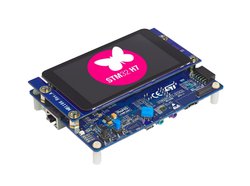
Overview¶
https://www.st.com/en/evaluation-tools/stm32h747i-disco.html
STM32H747I-DISC1 is the subset of STM32H747I-DISCO without the LCD display module.
The full range of hardware features available on the boards helps users improve application development by an evaluation of all the peripherals (USB OTG HS, Ethernet, microSD™ card, SAI Audio DAC stereo with audio jack input and output, MEMS digital microphone, SDRAM, Quad-SPI Flash, DCMI connector, MIPI® DSI interface, and others). Arduino™ Uno V3 and Pmod™/STMod+ connectors provide easy connection to extension shields or daughterboards for specific applications.
STLINK-V3E is integrated into the board, as the embedded in-circuit debugger and programmer for the STM32 MCU and USB Virtual COM port bridge.
Microcontroller main features¶
https://www.st.com/en/microcontrollers-microprocessors/stm32h747xi.html
STM32H747xI/G devices are based on the high-performance Arm® Cortex-M7 and Cortex-M4 32-bit RISC cores. The Cortex-M7 core operates at up to 480 MHz and the Cortex-M4 core at up to 240 MHz. Both cores feature a floating point unit (FPU) which supports Arm single- and double-precision (Cortex-M7 core) operations and conversions (IEEE 754 compliant), including a full set of DSP instructions and a memory protection unit (MPU) to enhance application security.
STM32H747xI/G devices incorporate high-speed embedded memories with a dual-bank Flash memory of up to 2 Mbytes, up to 1 Mbyte of RAM (including 192 Kbytes of TCM RAM, up to 864 Kbytes of user SRAM and 4 Kbytes of backup SRAM), as well as an extensive range of enhanced I/Os and peripherals connected to APB buses, AHB buses, 2x32-bit multi-AHB bus matrix and a multi layer AXI interconnect supporting internal and external memory access.
All the devices offer three ADCs, two DACs, two ultra-low power comparators, a low-power RTC, a high-resolution timer, 12 general-purpose 16-bit timers, two PWM timers for motor control, five low-power timers, a true random number generator (RNG). The devices support four digital filters for external sigma-delta modulators (DFSDM). They also feature standard and advanced communication interfaces.
Board features¶
- 4” capacitive touch LCD display module with MIPI® DSI interface (STM32H747I-DISCO order code only)
- Ethernet compliant with IEEE802.3-2002
- USB OTG HS
- SAI audio codec
- ST-MEMS digital microphones
- 2 x 512-Mbit Quad-SPI NOR Flash memory
- 256-Mbit SDRAM
- 4 color user LEDs
- 1 user and reset push-button
- 4-direction joystick with selection button
- Fanout daughterboard
- Board connectors:
- Camera (8-bit)
- USB with Micro-AB
- Ethernet RJ45
- SPDIF RCA input and output
- Stereo headset jack including analog microphone input
- Audio jack for external speakers
- microSD™ card
- TAG-Connect 10-pin footprint
- Arm Cortex 10-pin 1.27 mm-pitch debug connector over STDC14 footprint
- Board expansion connectors:
- Arduino Uno V3
- Pmod Type 2A and Type 4A
- STMod+
- Audio daughterboard
- Flexible power-supply options:
- ST-LINK USB VBUS, USB OTG HS connector, or external sources
- On-board STLINK-V3E debugger/programmer with USB re-enumeration capability: mass storage, Virtual COM port and debug port
Board pinout¶
Pins Legend¶
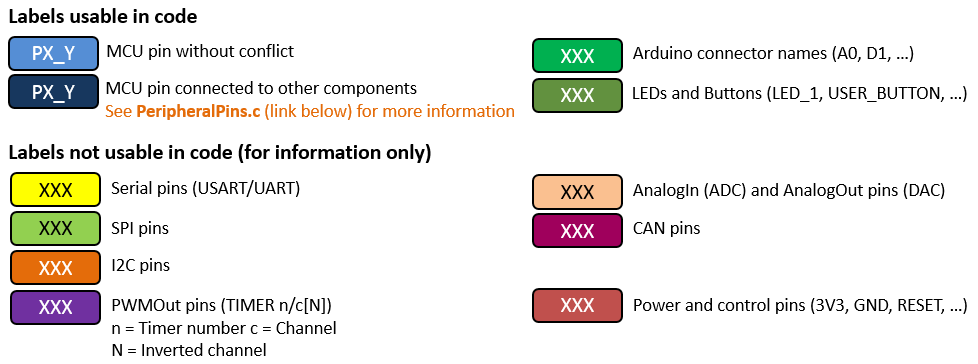
You can find more details on the available pins and labels in the PeripheralPins.c and PinNames.h files.
- ARMmbed/mbed-os repository on GitHub (up-to-date version, used with mbed CLI commands)
https://github.com/ARMmbed/mbed-os/tree/master/targets/TARGET_STM/TARGET_STM32H7/TARGET_STM32H747xI
Arduino-compatible headers¶
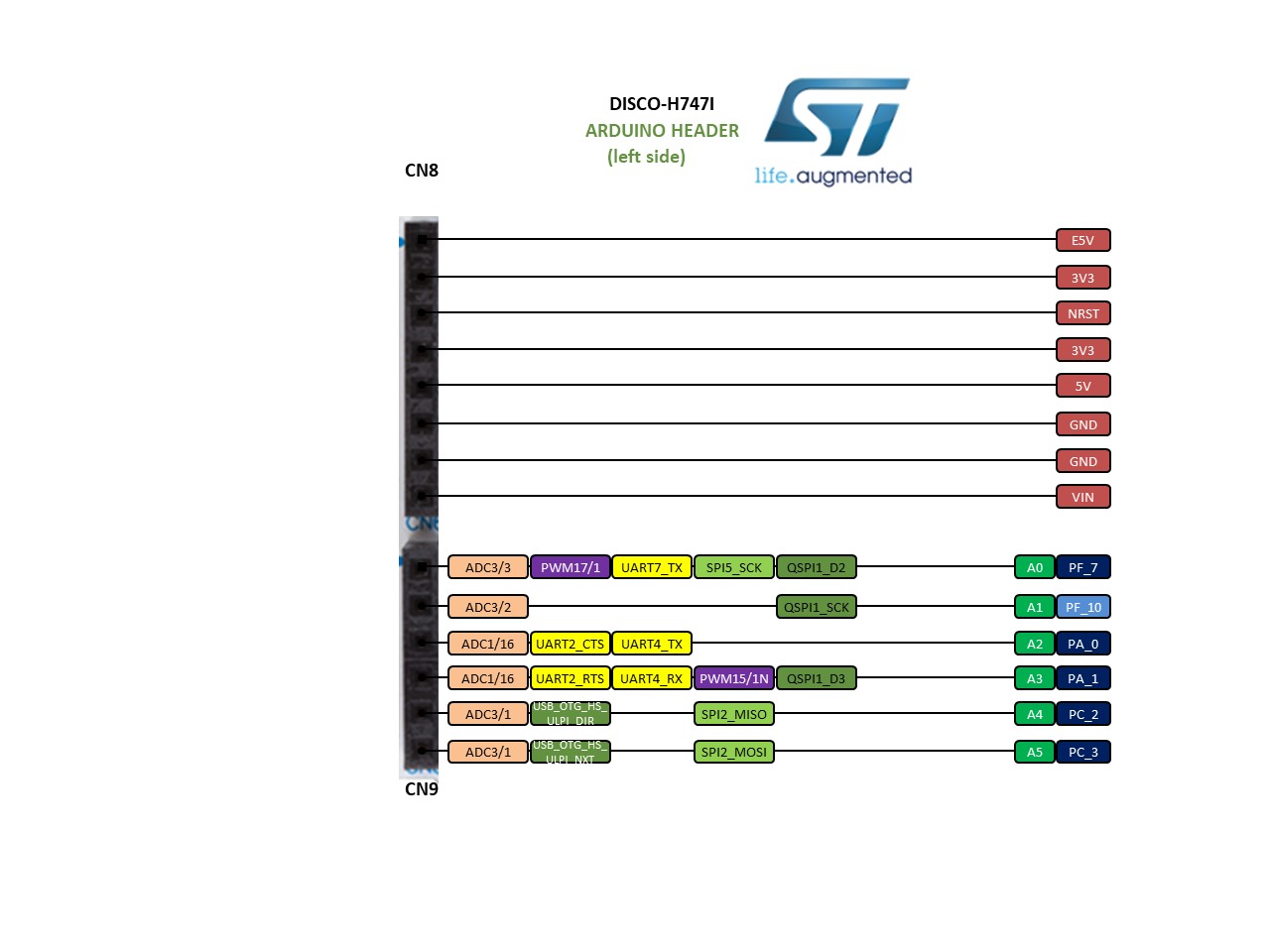
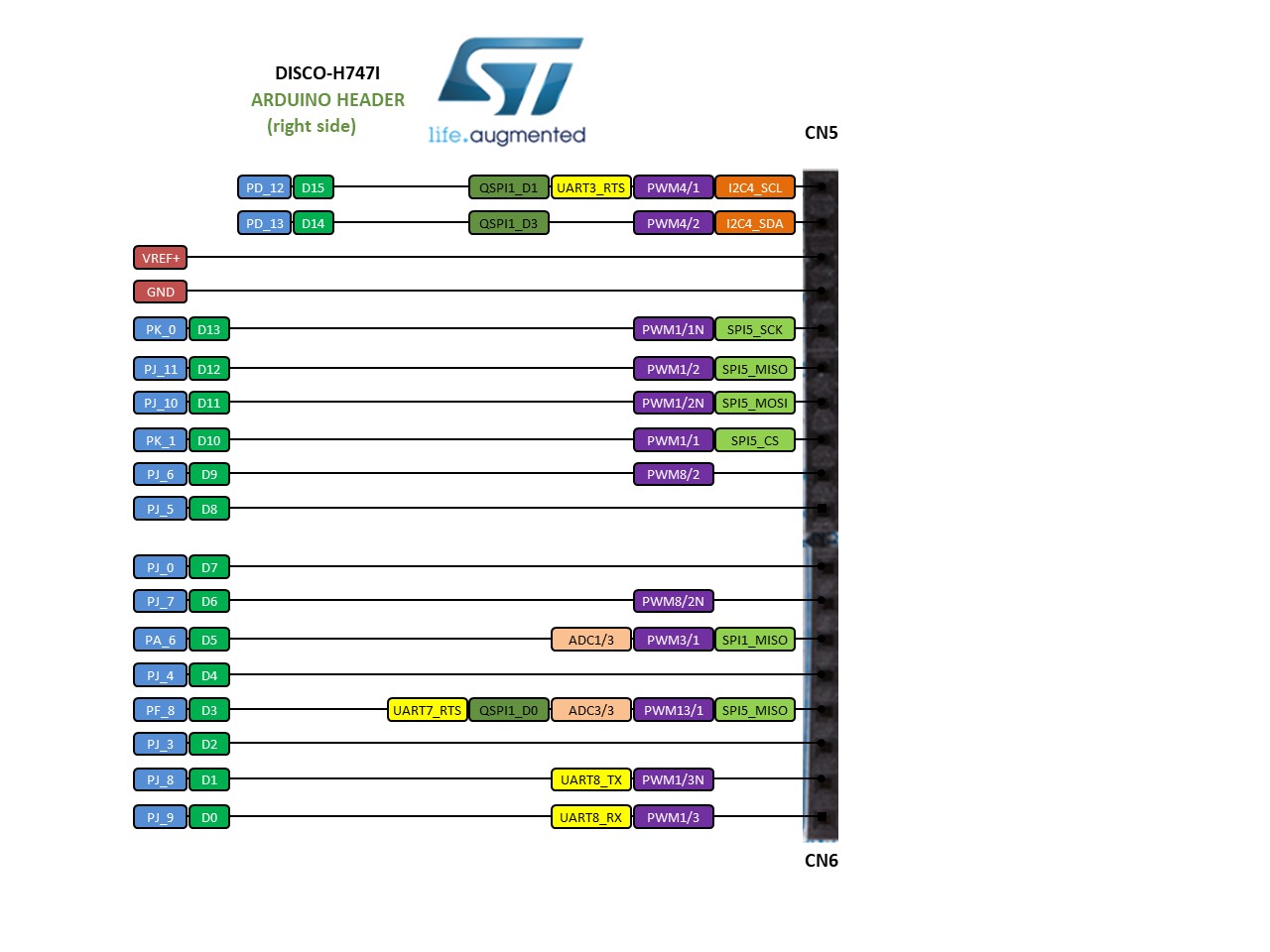
STMod+ header¶
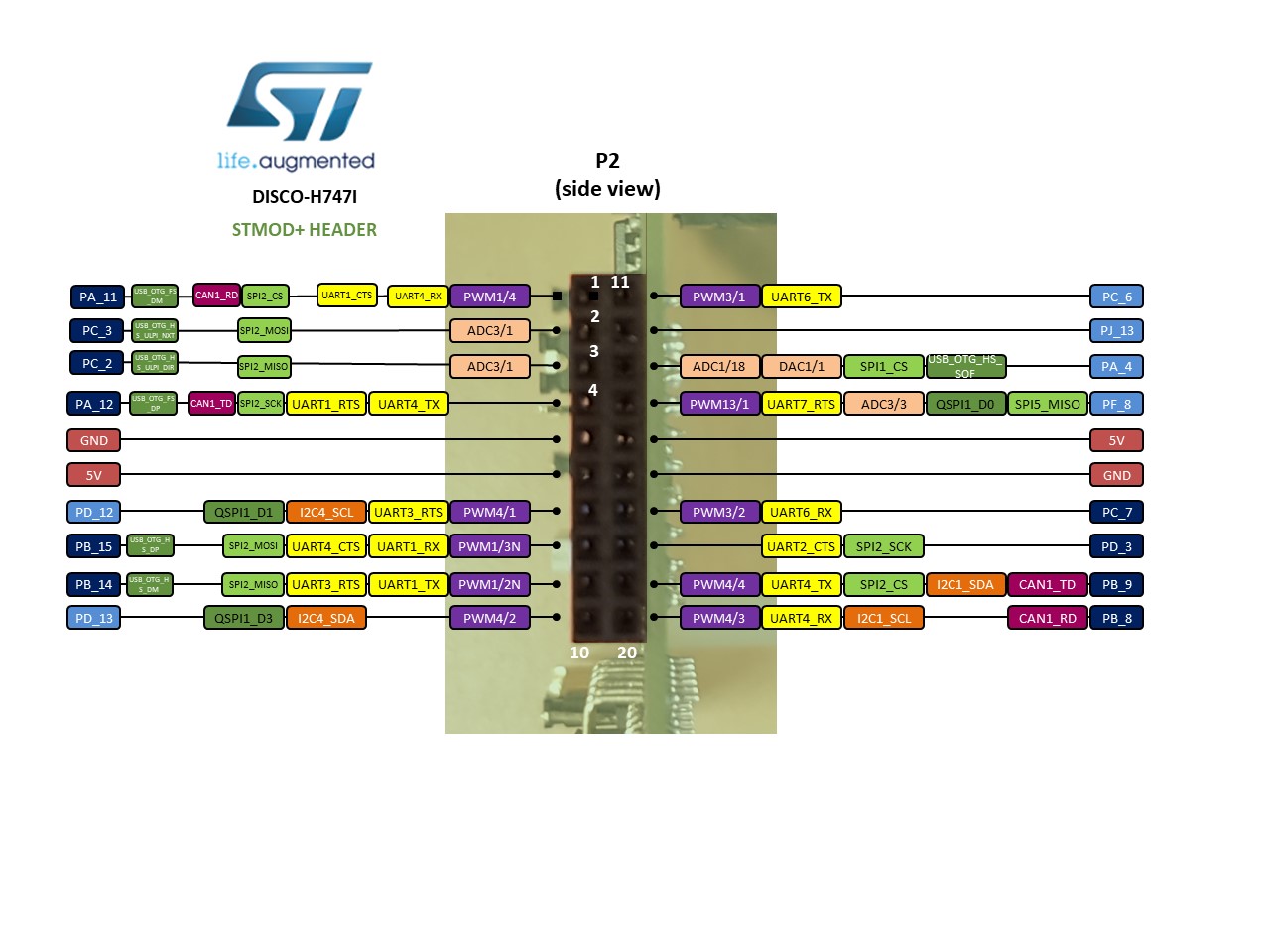
mbed-os examples¶
These official mbed-os examples have been tested on this board:
ST BSP examples¶
- https://os.mbed.com/teams/ST/code/BSP_DISCO_H747I/
- https://os.mbed.com/teams/ST/code/DISCO_H747I_AUDIO_demo/
- https://os.mbed.com/teams/ST/code/DISCO_H747I_LCD_demo/
Technical references¶
Known limitations¶
The following section describes known limitations of the platform. Note that general issues are tracked into the mbed repository available on GitHub.
By default, Ethernet connector is not enabled. See https://os.mbed.com/teams/ST/wiki/DISCO_H747I-modifications-for-Ethernet for soldier bridges needed updates.
You need to log in to post a discussion
